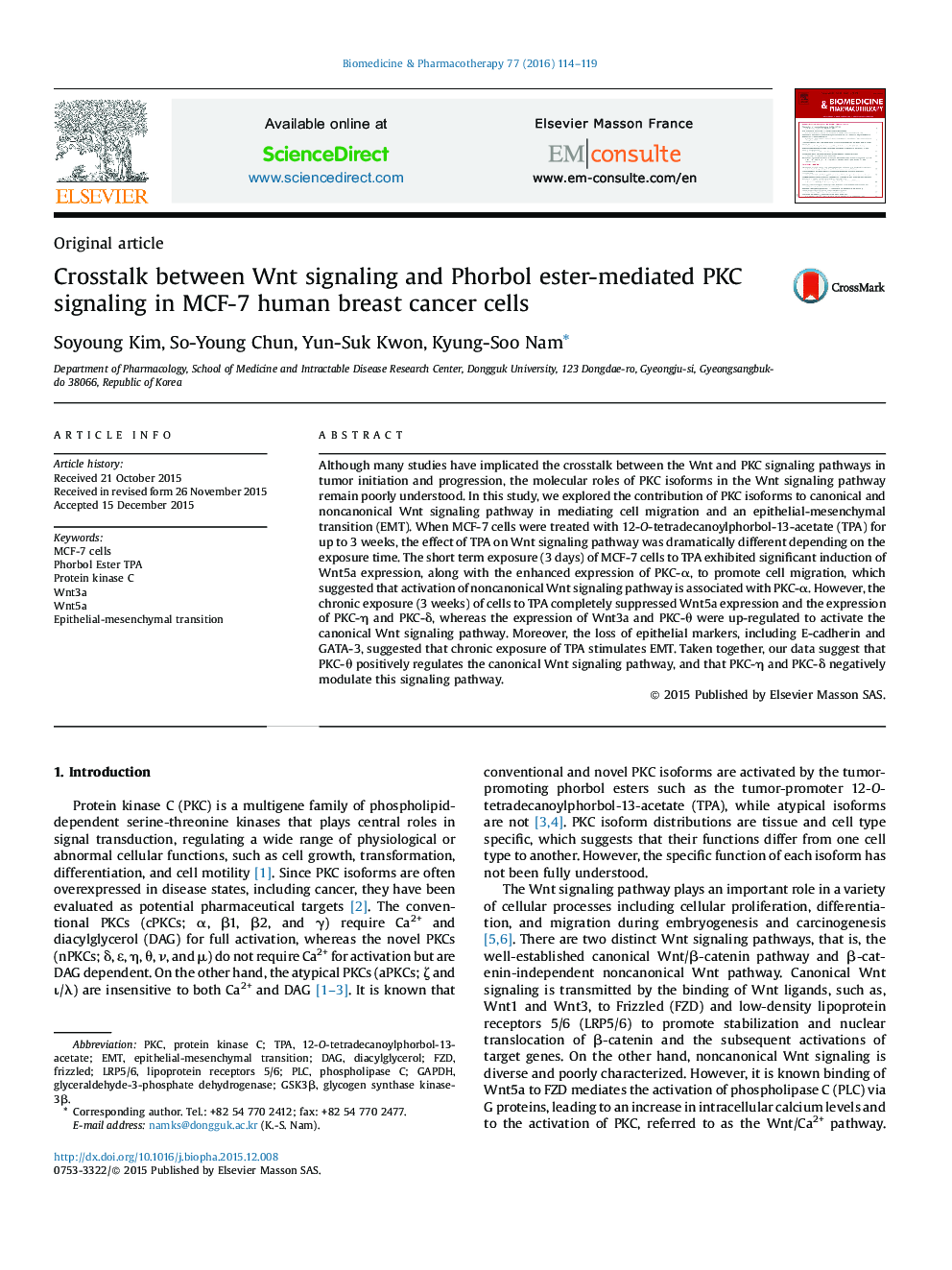| Article ID | Journal | Published Year | Pages | File Type |
|---|---|---|---|---|
| 2524844 | Biomedicine & Pharmacotherapy | 2016 | 6 Pages |
Although many studies have implicated the crosstalk between the Wnt and PKC signaling pathways in tumor initiation and progression, the molecular roles of PKC isoforms in the Wnt signaling pathway remain poorly understood. In this study, we explored the contribution of PKC isoforms to canonical and noncanonical Wnt signaling pathway in mediating cell migration and an epithelial-mesenchymal transition (EMT). When MCF-7 cells were treated with 12-O-tetradecanoylphorbol-13-acetate (TPA) for up to 3 weeks, the effect of TPA on Wnt signaling pathway was dramatically different depending on the exposure time. The short term exposure (3 days) of MCF-7 cells to TPA exhibited significant induction of Wnt5a expression, along with the enhanced expression of PKC-α, to promote cell migration, which suggested that activation of noncanonical Wnt signaling pathway is associated with PKC-α. However, the chronic exposure (3 weeks) of cells to TPA completely suppressed Wnt5a expression and the expression of PKC-η and PKC-δ, whereas the expression of Wnt3a and PKC-θ were up-regulated to activate the canonical Wnt signaling pathway. Moreover, the loss of epithelial markers, including E-cadherin and GATA-3, suggested that chronic exposure of TPA stimulates EMT. Taken together, our data suggest that PKC-θ positively regulates the canonical Wnt signaling pathway, and that PKC-η and PKC-δ negatively modulate this signaling pathway.
